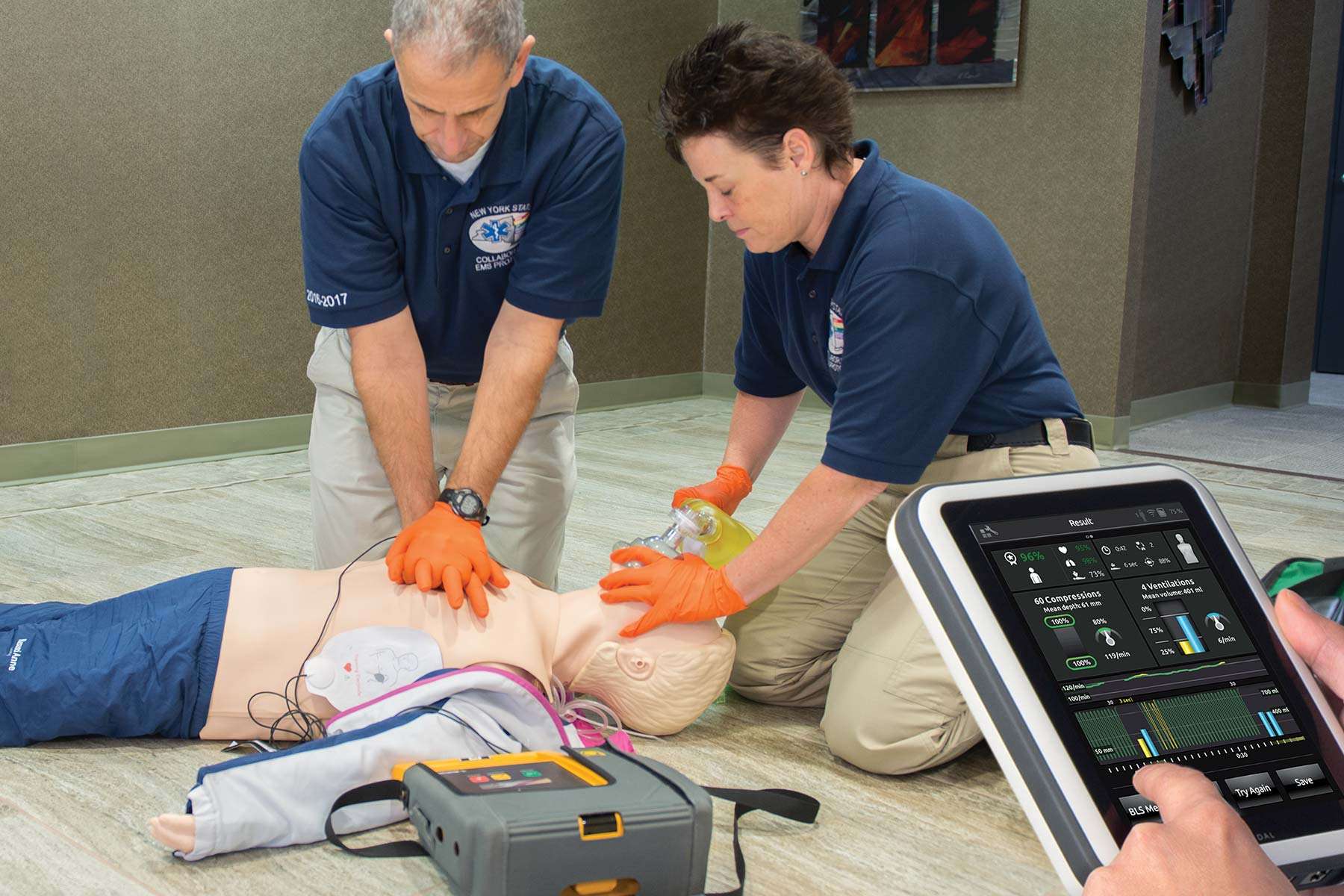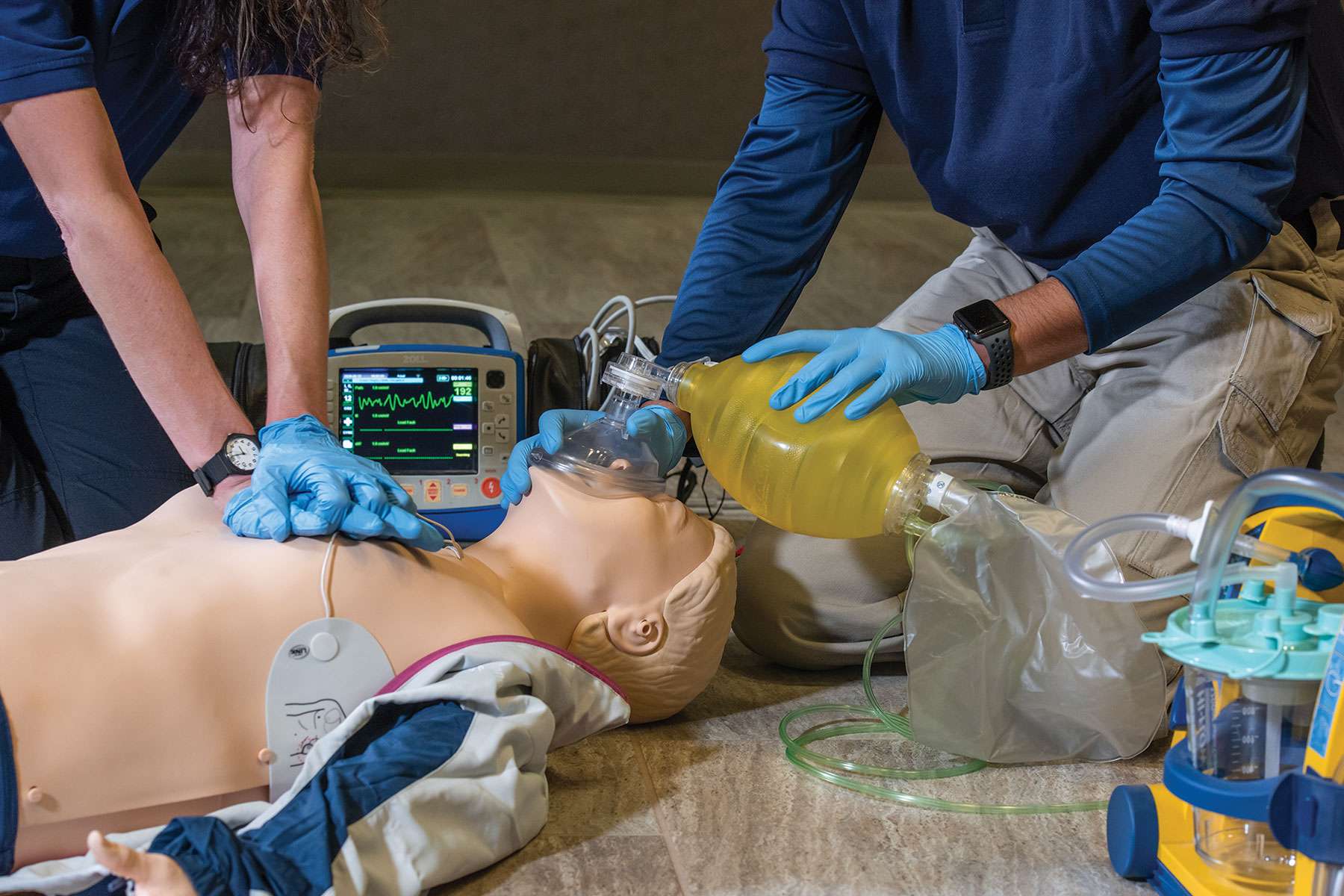4 Reasons We Love Teaching Our Resuscitation Workshops
Read about some of the most meaningful observations and outcomes we see from conducting our high-performance team trainings.

Read about some of the most meaningful observations and outcomes we see from conducting our high-performance team trainings.

Laerdal’s "Building High-Performance Resuscitation Teams" workshop was developed with the high-performance CPR experts at the Resuscitation Academy in Seattle to provide an introductory experience on how simulation can be used to build and maintain high-performance resuscitation teams to improve outcomes from sudden cardiac arrest.
Free to attend, the 4-5 hour workshop features educational content in the form of lectures, hands-on experiences, and peer-to-peer networking. It’s designed to improve team performance through simulation, with a focus on improving leadership’s follow-through on measurement, debriefing and deliberate practice in CPR. The workshop aims to help arm participants with the knowledge they need to take high-performance CPR back to their organizations to implement. The workshop is built for a variety of organizations, departments, and agencies, including EMS, fire, hospitals, dispatchers, law enforcement, and more. Cross-disciplinary teams are encouraged to attend the workshop together – as "it takes a system to save a victim."5
Workshops are conducted by Laerdal’s team of four Regional Channel Managers. We asked them to reflect on the most meaningful observations and results they often see from teaching the workshops. Below, we share some of their findings.
Nothing is more exciting, inspiring, or rewarding than when we get a call from someone who’s attended a workshop to tell us that their organization’s return on spontaneous circulation (ROSC) rates have increased by 10%, or that they’ve had multiple saves in just a few months. But these are the kinds of stories we hear regularly from our workshop attendees.
During the workshop, participants learn how to:
Together, these skills arm providers with the ability to work efficiently and effectively as a team to deliver the highest-quality CPR possible. The improvements that many workshop participants have seen serve as clear evidence that high-performance CPR can save more lives.
Scott Starrett, Laerdal’s Regional Channel Manager for the Southeast Region, recalls one of his favorite save stories. “Dispatchers, fire, police, and ambulance in a rural part of Florida all attended a workshop. The very next day, a man went into cardiac arrest at a local bus stop. The dispatcher who received the call had been at the workshop, and coached bystanders to perform CPR. The sheriff who responded to the scene had also been at the workshop. He started CPR and administered an AED. The fire and EMS teams who showed up been there as well. Working together, they got ROSC on-scene. The man walked out of the hospital 3 days later.”
Participants begin the workshop by practicing their individual CPR skills using Laerdal's QCPR manikins. When paired with a feedback device, these manikins give real-time feedback on performance and provide a score. We find that this exercise usually results in a “bucket of cold water” reality check for most participants who discover that their CPR quality – whether it be their compression depth, rate, or recoil – wasn’t at all what they had believed it to be.
After the "aha moment" they experience after getting their initial scores, many participants are inspired to do better and are determined to improve. Throughout the course of the workshop, we love to see participants’ scores and confidence increase as a result of using the QCPR technology during the hands-on activities.

The real-time feedback allows participants to make adjustments to their technique in real time until they’ve perfected all the key parameters of high-quality CPR. And, it shows them that high-quality CPR is possible. "It gives them the confidence that, 'hey, I can do this. I just didn’t have a measurement before,'" explains Kathy Linville, Laerdal’s Regional Channel Manager for the Central Region.
Attending a workshop can be the beginning of a journey that leads organizations to implement high-performance CPR and spread their expertise to others. After attending one of our workshops, some organizations have been inspired to attend the flagship Resuscitation Academy Leadership Workshop in Seattle, which introduces EMS leaders to the 10 steps for improving survival from cardiac arrest. From there, some have gone on to become Resuscitation Academy “Lighthouse Communities,” or centers that serve as mentors and resources to others. And it all started with the steppingstone of attending a Laerdal workshop introducing them to high-performance CPR.
"We wanted to change," explains Jorge Gonzalez, Assistant Fire Chief for Davie Fire Rescue in Davie, FL. "I said, what if we can have more people survive cardiac arrest [and] live to tell about it – how great is that? Life continues."6 Davie Fire made a commitment to high-performance CPR after attending a Laerdal workshop. They went on to attend a Resuscitation Academy in Seattle, and later developed their own Resuscitation Academy that has spread via trainings across multiple counties statewide. The impact that the program has made has led to many more saves in the state, giving survivors the gift of "seeing another sunrise."7 And, among the survivors is one of Davie Fire's own. Firefighter Eric had been instrumental in having his department participate in the first Florida Resuscitation Academy. When he went into cardiac arrest while brushing his teeth at work a few months later, he was successfully resuscitated by his own department. He left the hospital neurologically intact.
Effective teamwork and communication are essential to high-performance CPR. When teams train to act as a choreographed unit, it can shave off precious seconds and maximize time on the chest. This is why we aim to build strong teamwork skills in the workshop, including leadership and followership, by splitting participants into teams to perform a number of challenging hands-on activities.
- Kathy Linville, Laerdal’s Regional Channel Manager for the Central Region
Going through this challenging learning experience together, participants start the workshop as strangers and finish as friends. "I love seeing their scores going up and high-fiving and hugging...and then seeing them walk out with a smile on their face and saying, 'I'm going to implement this. I'm going back to my chief,'" says Scott Starrett.
The friendships participants build often last beyond the workshop. "After we leave, they’re still getting together, networking, sharing best practices, and encouraging each other," says Brian Vrable, Regional Channel Manager for the Northeast Region.

The Resuscitation Workshops are designed to help increase survival rates from OHCA & IHCA through simulation with a focus on refining leadership's follow-through on measurement debriefing and deliberate practice in CPR.

Sign up for Laerdal Medical email updates. You can identify your interests and receive new educational content, updates, event information and more.